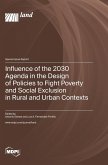Urban poverty characterized by dilapidated living conditions has plagued mankind over the decades, the effects traverses borders leaving no country unscathed. Non-Governmental organizations (NGOs) in their bid to alleviate poverty continue to multiply in afflicted zones. The question emerging is whether more NGO's are needed in developing countries from developed regions. The author unravels why and how NGOs should be established in urban slums, what should be considered and what role the community should play. Arguably, defunct NGOs leave a trail of hopelessness taking away the poor's dignity and resolve to fight poverty. A clear exit strategy is proposed for actors contemplating to establish NGOs. Additionally, familiarization with cultural practices of the poor is salient. It enables NGOs to engage in deeper causes of poverty. Approaches' such as; provision of education, trainings, technical skills, and health among others are probed and policy implications discussed. This empirical research utilizes primary data derived via questionnaires and personal interviews generating information from 100 slum households and four NGOs in Kawangware slum, Nairobi.
Bitte wählen Sie Ihr Anliegen aus.
Rechnungen
Retourenschein anfordern
Bestellstatus
Storno








